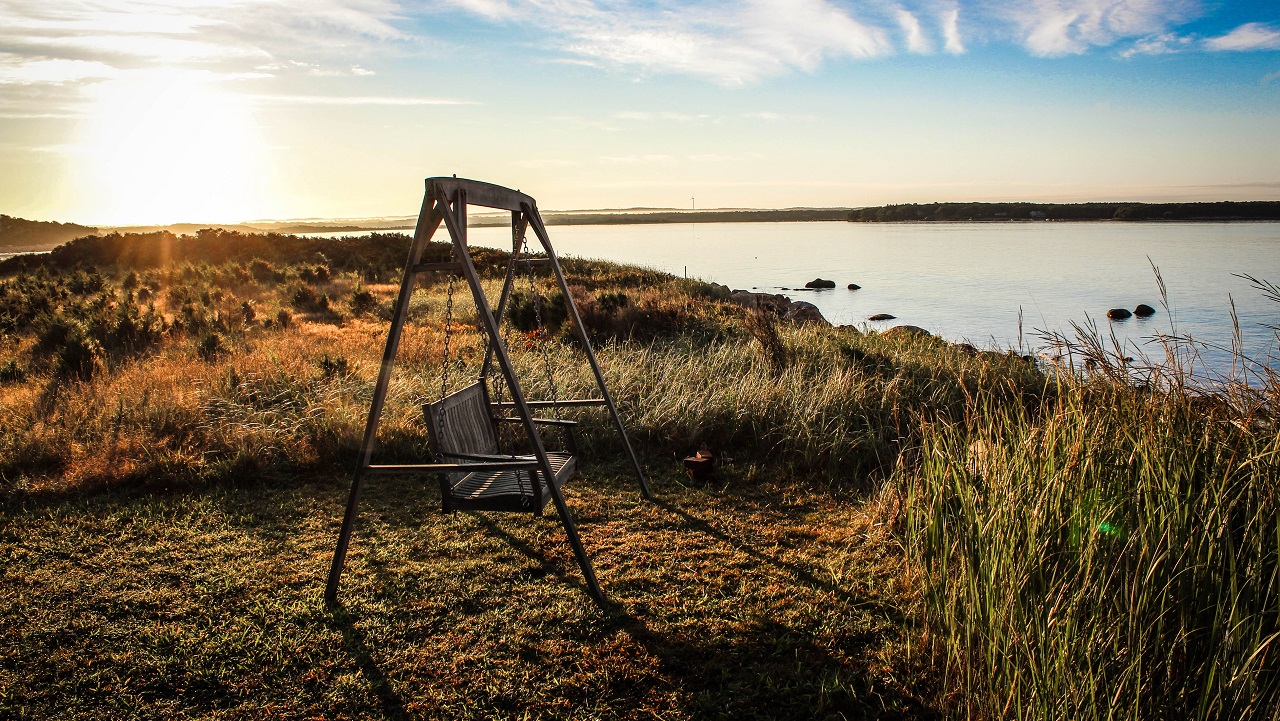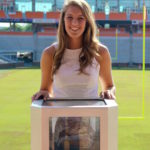
27 Apr Main Street of Gold
I’ve always been fascinated by small towns.
Maybe it was the teaser I got by growing up on the edge of an old family farm, or maybe it was my overactive, Tom-Sawyer-and-Laura-Ingalls-Wilder mind, but I’ve always been irresistibly drawn to a Mayberry lifestyle on the Main Street of a coffee table Christmas village.
Although I’ve lived my fair share of small town moments, last Friday’s happenings offered me one that might have just fulfilled some of those childhood wishes.
My grandmother and I were riding her four-wheeler down an old gravel road, hoping to run into the Savannah River wherever the road ran out. Unfortunately, we ran into a “Private Property” sign first, which required me to three-point turn the four-wheeler before the also-advertised “Security Dog” discovered us.
In the midst of my three-point turn, a couple in a truck pulled up behind us, and long Southern-drawl-family-history-story short, they ended up inviting us not only down what happened to be their driveway, but into their home, onto their riverfront pasture, and back for our next visit.
It was such a picturesque snapshot of Southern hospitality that it almost ached with nostalgia.
They threw open their pasture gate to us and ushered us down to the riverbank, assuring us that their horses weren’t scared of anything—while I tried to figure out if I was dreaming while working up the courage to actually press the four-wheeler accelerator. And then they proceeded to tell us that there was a swing by the water and over there was the gate where we could get in if they weren’t home.
They put on no airs, no pretenses for us. They were raw and simple people who decided not to hold us at arms-length. Without sugary niceties or secret agendas, they extended to us plain old nearness.
“As I hearken back to a way of life that seems to have passed me by, I realize that the story of the Bible is leaning forward, anticipating the day when that kind of closeness will be reality.”
I think I’m drawn to the small town tales for a deeper reason than just the romanticism of the general store and the town square. If you set aside the gossip and drama, I see a side of heaven that maybe only the likes of Mayberry can reflect.
Small towns live and breathe closeness—physical proximity and personal nearness. Relationships that are pure and deep, enriched by history and context and the knowledge of not just a daily schedule, but the dirty laundry of three generations ago.
As I hearken back to a way of life that seems to have passed me by, I realize that the story of the Bible is leaning forward, anticipating the day when that kind of closeness will be reality.
Adam and Eve tasted it—their small-town-routine, crickets-and-tree-frogs walks with God each evening—but when they sinned, the closeness ended faster than a screen door could slam.
From then on out, the way to God’s presence was blocked by a veil in the tabernacle and then in the temple. Only Israel’s high priest could go in there once a year, carrying the blood of a sacrifice to sprinkle on the mercy seat on the top of the Ark of the Covenant.
Once a year, the way to God was cracked open, and every year, nothing could be holy enough, perfect enough, powerful enough to keep that veil from swinging shut. Drawing near to God was a dream, a wish that no one could sustain. His presence only brought fear of judgment and the crushing awareness of sin.
As idyllic as it was on Friday afternoon to pet the horses, walk out into the river barefoot, and marvel at the view, the true heroes of the day were the couple who invited us down their driveway to enjoy what lay on the other side.
There would have been no going to the river without someone to open the gate.
“There is no fellowship with God without Someone to remove the veil.”
There is no small town porch-sitting together without someone to squeak open the screen door and pour the sweet tea.
There is no fellowship with God without Someone to remove the veil.
The Old Testament priests could do it for a day. They were qualified to go before God to represent Israel because of their ancestry and their calling, but only to a certain extent.
On that one day, the veil was lifted, but then the next day came and it was still there. Priests were born and interceded for the people, but then they died. Sacrifices were made for centuries to cover sin, and yet the sin problem remained.
It would take a certain Someone to open up the way to God—someone who could enter the veil as both holy priest and perfect sacrifice and extend the offer of closeness to man again. Someone who could get rid of the veil forever and pay for sin in its entirety.
And then He came.
Jesus lived a perfect life, qualifying Him as our holy High Priest, and He died a perfect death, qualifying Him as our spotless Sacrifice.
And just like that, the veil tore in two.
“It would take a certain Someone to open up the way to God—someone who could enter the veil as both holy priest and perfect sacrifice and extend the offer of closeness to man again.”
Now, Hebrews tells me, I live in light of a hope far better than the law and sacrifices. The hope of Jesus’ priesthood invites me to draw near to God.
Now, I can draw near with confidence to the throne of grace. (Hebrews 4:16)
Now, I can draw near in full assurance of faith. (Hebrews 10:22)
Now, I can draw near to God, and He will draw near to me. (James 4:8)
There is no fellowship without access.
There is no restoration without a Mediator. No justification without a Lawyer. No forgiveness without an Advocate. No nearness without a Priest.
The small town isn’t a pipe dream. That closeness is available. He knows my history and my context and the dirty laundry I haven’t even created yet—and still He throws open the pasture gate for me. He pats the edge of the swing for me to sit down beside Him and enjoy the river, and He lets me know that the gate will be open tomorrow too—and the next day, and the next day.
So until I’m strolling that Main Street of gold with Him, I can rest assured that my High Priest has torn the veil once and for all.
Heaven is open. Nearness is extended once again. And the riverside swing has a spot for me.

Haley Barinowski
Haley is a shameless Clemson fanatic who believes in dessert, Christmas lights, and throwing football. She loves good books, good pens, and good runs. She attends our Downtown campus.


